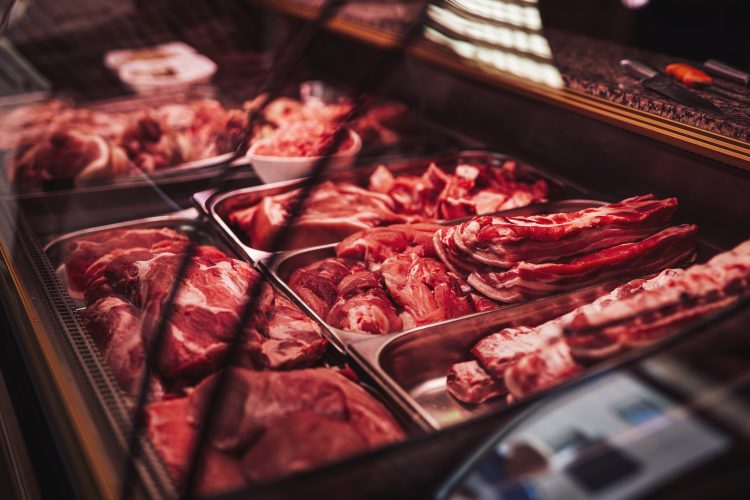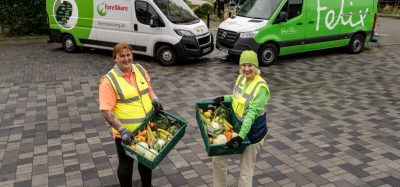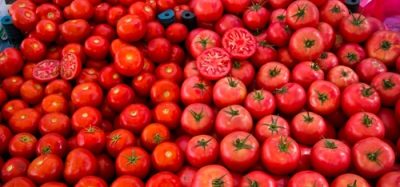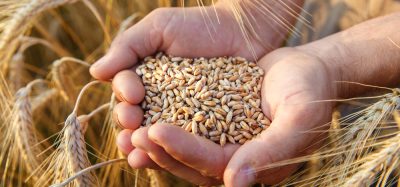MPs warn illegal meat smuggling crisis risks major disease outbreak
Posted: 8 September 2025 | Ben Cornwell | No comments yet
A new EFRA Committee report has said illegal meat smuggling is rising, putting public health, farming and UK food security at risk.


The report describes the situation as “unacceptable,” noting high volumes of illegal meat are reaching shops, markets, restaurants, farms and kitchen tables.
Illegal meat and dairy imports are entering the UK in “alarming amounts,” putting food safety, farming, and public health at risk, MPs have warned in a report published today.
The Environment, Food and Rural Affairs (EFRA) Committee highlighted that imports for both personal use and sale are largely unmonitored, with no publicly available data on their scale or destination. The report describes the situation as “unacceptable,” noting high volumes of illegal meat are reaching shops, markets, restaurants, farms and kitchen tables.
Illegal meat carries a high risk of spreading serious animal diseases, including foot and mouth disease and African swine fever, and may also contain bacteria, viruses and parasites due to unregulated slaughter, handling and storage.
Observations from Port of Dover visit
During a visit to the Port of Dover in March, MPs observed meat packed in plastic bags and newspapers, stowed in cardboard boxes, and stored in defrosted chest freezers. They were alarmed by Border Force’s limited inspection facilities, restricted decontamination capability and lack of dedicated handwashing areas.
One port worker told MPs they had “found an entire pig stuffed inside a suitcase; its legs cut off badly so that it could fit inside. Not a professionally butchered animal.”
Staff from Dover Port Health Authority added:
There are literally hundreds of targeted vehicles driving straight past as we do not have the resources to stop and search.”
The report challenges the Department for Environment, Food and Rural Affairs’ claim that “intelligence-led checks” are being conducted, describing the reality as “a limited and incomplete intelligence network, strained enforcement capability, and port facilities unsuitable for seizing significant volumes of potentially contaminated meat.”
MPs warn there is currently no effective deterrent to smuggling and call on Defra to prosecute repeat offenders and those importing large quantities. While the Department has plans to crush vehicles carrying illegal imports, the Committee notes this is “not a silver bullet” solution.
The report also highlights that public awareness of the risks posed by illegal meat, as well as the rules governing personal imports, remains low. To address this, MPs recommend broader government communications campaigns aimed at informing consumers. Although Defra has banned most personal imports of meat and dairy from the EU, the Committee warns the ban has been “toothless,” with prohibited products still entering the UK via airports, seaports, Eurotunnel and parcels. MPs say criminal enterprises are exploiting these routes to distribute meat “with impunity.”
“Sleepwalking through the biggest food safety crisis since the horse meat scandal”
Following the report’s publication, EFRA Committee Chair Alistair Carmichael MP said:
Every day, vans laden with undeclared, unhygienic and unrefrigerated meat are rolling through our ports for distribution and sale in Britain. The authorities tasked with tackling this wave of illegal produce find themselves without the necessary leadership, resources and intelligence to do so.
It would not be an exaggeration to say that Britain is sleepwalking through its biggest food safety crisis since the horse meat scandal. A still bigger concern is the very real risk of a major animal disease outbreak. The single case of foot and mouth disease in Germany this year, most likely caused by illegally imported meat, cost its economy one billion euros.
This problem has been building over a number of years under successive governments. We are calling on this Government to get a grip on what has become a crisis, by establishing a national taskforce with proper leadership and a strategy, boosting food crime intelligence networks, creating and enforcing real deterrents to tackle the criminal enterprises involved and equipping port health and local authorities with the resources and the powers they need.”
Related topics
Food Fraud, Food Safety, Hygiene, Sanitation, Trade & Economy
Related organisations
Dover Port Health Authority, Environment Food and Rural Affairs (EFRA) Committee









